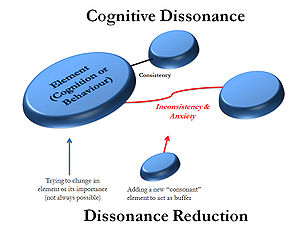Do you take stock in your first impression? Everybody does. After all, that is where the cliche "you don't have a second chance to make a first impression" came from.
However, when first impression is wrong, and they often are, what you have here is a cognitive bias known as the "halo effect". And scammers are known to use the halo effect for their scams.
In short, halo effect is the way the mind used the first impression to subsequently affect the judgement.
Say you are trying to evaluate someone, maybe interview a candidate for a job. If he arrives in a full suit (as is the normal dress code), nicely tailored, matching tie, spit-shined shoes, great crease on the pants, not a hair out of place, clean-shaven, even proper cuff links, you'd be impressed.
However, if the same candidate showed up in a rumpled blazer, slightly stained pants, dirty shoes, shirt that doesn't look like it's been ironed for a week, and 5 o'clock shadow before noon, then you're probably not going to like him as much as the guy who was dressed to the nines.
Even if it's the SAME PERSON, thus, the same abilities, qualities, personalities, etc.
That's why in jury trials, the defendant is NOT to appear in court wearing jail jumpsuits, or in chains or handcuffs, and is often in a suit to look as "clean" as possible, as not to prejudice the jury.
There are a lot of subtle signals one can project to create an image that would make a good first impression without being obvious about it. And scammers know most of them.





![Cover of "Matrix-Trilogy [Blu-ray]"](http://ecx.images-amazon.com/images/I/61MWbQ03UVL._SL300_.jpg)